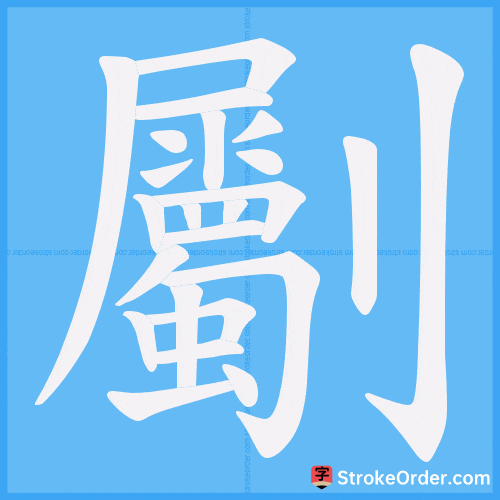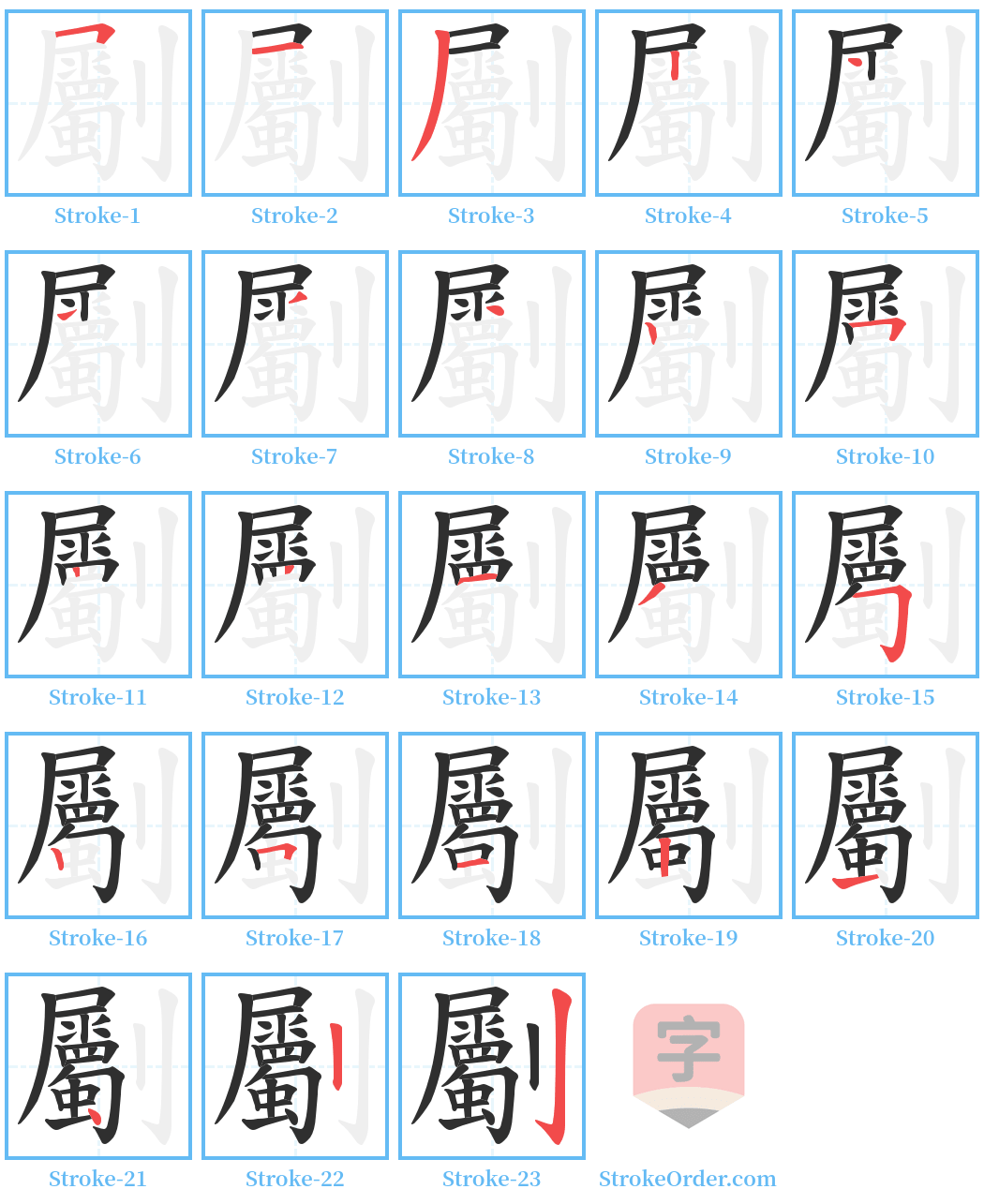劚 Stroke Order
Animated Stroke Order of 劚

Stroke Order Diagrams for 劚

Information of 劚
Pinyin
zhú
Radical
刂
Strokes
23 strokes
Usage
★★
Definition
劚 (zhú)
1. Ancient variant of "斸" (to chop).
动 (verb)
1. To chop with tools such as a machete or axe ([En.] chop).
- Example: 劚玉如泥 (to describe a blade that is extremely sharp).
- Reference: "说文" - "劚, 斫也。从斤,屬声。按,似斤,其首如鉏。"
- Reference: "荀子·荣辱" - "So-called using the fox father’s spear to stab a cow's arrow." Note: "It means to stab."
- Reference: 谭嗣同's "三鸳鸯篇" - "Lotus can be broken, wood can be chopped, foolish bones are a bundle for a thousand years."
2. To dig ([En.] dig).
- Example: 劚田 (to dig up the soil of a field).
- Reference: "齐民要术" - "Next year, dig the land to make it fertile, then plant hemp under the locust tree."
名 (noun)
A type of farming tool similar to a hoe ([En.] hoe).
- Reference: "国语" - "Beautiful gold was used to cast swords and halberds, tested on dogs and horses; while bad gold was used to cast hoes, shovels, axes, and 劚, tested on soil."